- Home
- Resources
- Sites of interest
- European Centre for Modern Languages
European Centre for Modern Languages

News
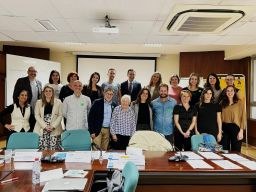

14/06/2024
News
- European Union
Convocatoria abierta para prácticas en el Centro Europeo para las Lenguas Modernas
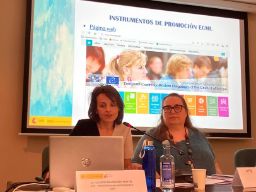
11/06/2024
News
- European Union
What is it?
The European Centre for Modern Languages (ECML) is a special institution of the Council of Europe dedicated to the study, promotion, and development of linguistic education and language diversity in Europe. It was created in 1994 and is based in Graz, Austria.
It currently has 36 Member States. The External Education Action Unit of the Ministry of Education, Vocational Training, and Sports is the body responsible for representing Spain in the board of directors.
The vision of the Centre is: “A Europe that is committed to linguistic and cultural diversity, that recognizes and supports the key role that quality language education plays in fostering intercultural dialogue, democratic citizenship, and social cohesion.”
The European Centre for Modern Languages implements and coordinates four-year programmes, which form the framework for multilateral development projects, bilateral in-country capacity building (training and advisory activities), as well as a wide range of activities aimed at the broader public.
What does it pursue?
The mission of the Centre is to promote innovative approaches to modern language learning and teaching by way of research, training, and consultancy services. This is to help Member States address the development of a quality education for all as a prerequisite of social cohesion, intercultural dialogue, and democratic citizenship.
The ECML organizes four-year programmes on language education, including expert meetings, workshops, conferences, research projects, dissemination activities, and international networking. While all Member States of the Council of Europe can benefit from participation in some activities on a limited basis, membership gives direct access to all services of the Centre.
Advantages
- The ECML is at the forefront of international educational advances. It offers Member States training and advice on issues such as assessment and establishing learning standards, CLIL/AICLE, the application of pluralistic approaches to diversity, and the use of ICT in language teaching.
- It’s a platform for the development of research and collaboration between Member States. It also facilitates the cooperation between these and other countries inside and outside of Europe, supporting the creation of international projects, the exchange of good practices, and the optimisation of resources.
- It promotes the cultural and economic value of languages, addressing all interested parties, from teachers and administrations to young people, parents, companies, associations, etc. It also collaborates with a wide network of national and international organisations that contribute to the development and dissemination of its projects.
- Member countries participate in the choice of the programme and can base their choice on their national educational priorities.
- The ECML is a support to address problems that have been highlighted in the Language Policy Profiles. It also offers training and consultancy services to work on individual and priority issues for Member States.
- It has a scholarship program for young graduates who wish to do an internship with them.
Working Languages
Although English and French are the two official working languages of the Council of Europe, the European Centre for Modern languages actively promotes multilingualism, both formally and informally.
Different languages are used in the programmes that the ECML develops, the materials it publishes, and the meetings, conferences, and working groups it organizes, depending on its target audience.
Structure
- Steering Committee: ministerial representatives appointed in each Member State. It adopts the programmes of activities, and oversees their implementation and the management of the Centre.
- National Appointing Authorities: agencies in relation to the ministries in each Member States. They are responsible for the selection of participants in its activities.
- National Contact Points: national networks in the field of language education. They disseminate information and documentation on the Centre’s work at the national level.
- Austrian ECML Association (Verein EFSZ): represents the Austrian authorities. It provides and manages the ECML infrastructure and develops synergies with partners in the region, thus creating added value in the host country.
Resources
The publications illustrate the dedication and active involvement of those who have participated in the international projects and training and consultancy activities. Below are some materials in different languages:
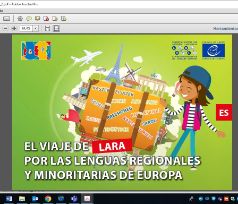
Lara’s journey through Europe’s regional and minority languages
Having found out about some 46 of Europe’s mostly ‘bigger’ languages on her first journey, on this trip Lara has chosen to scratch beneath the surface and explore languages which are not so well known beyond the areas they are spoken in.

Lara's language journey across Europe
The languages you will encounter in this brochure reflect the diversity of the cultures and traditions which exist side by side on our continent. Some of the around 225 languages which are native to Europe are spoken by millions and others, that are only spoken by a handful of people, are, sadly, close to dying out.
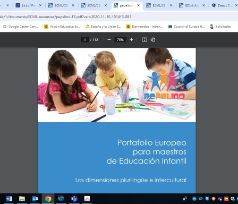
European portfolio for pre-primary educators - The plurilingual and intercultural dimension
This portfolio is designed for educators and teachers in the pre-primary sector, either in initial or in-service training. It encourages personal reflection on the professional skills related to the linguistic and intercultural dimension of working with children.
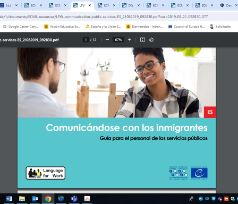
Communicating with migrants - Guide for staff in job centres and public services
This leaflet offers strategies and practical tips for managers to help staff support clients with limited language skills. And it offers help for all staff to reflect on communication styles used in today’s increasingly culturally and linguistically diverse working context.
Contacto ECML - España
Ponte en contacto con nosotros a través de:

